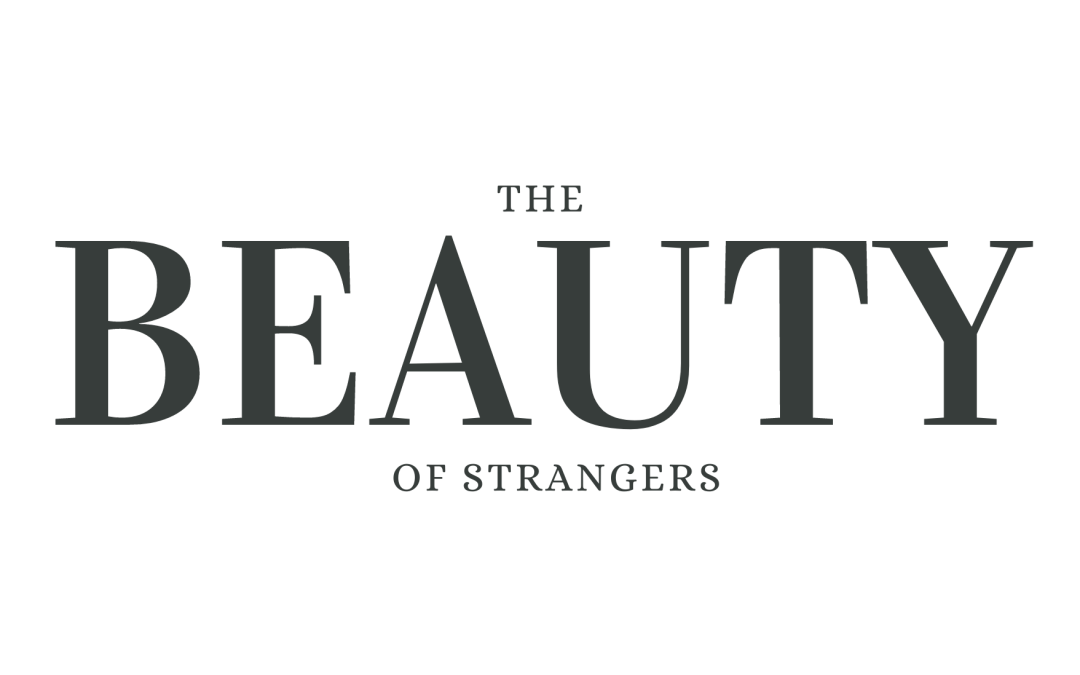This piece was published at EditionF in January 2017.
It was originally written in German and translated by me.
I find myself alone in cities quite often. Not as a traveler, but as a nomad. As a stranded one, just a short amount of time. Berlin, New York – I love that feeling: surrounded by new streets and places, promising adventures. New people vaporizing the distinct smell of stories, of life. Strangers.
Particularly in Berlin, I gained a lot from these unknown personalities. They inspire me, their stories, their adventures, their opinions pull me in. There is no weekend on which I do not talk to strangers at least for small talk. It doesn’t matter if I’m in a café or on the train, in Yoga classes, or a supermarket. Funnily enough, it doesn’t happen in clubs that much, but parties too, belong on the list. The list of stranger places. This is probably why a certain playlist of TED talks drew my attention. Its title, „The beauty of strangers”. My first thought: I’m not the only one! Others, too, have discovered the beauty in strangeness, the unknown.
But wait: Shouldn’t I be scared of strangers? For decades, parents and teachers, friends and the media have taught us: „Do not talk to strangers.” Even – especially not – if they have puppies. Or candy, for that matter. And of course, it is legit to teach children to meet the unknown with respect. But fear? Most people feel uncomfortable in the presence of strangers. We don’t know anything about the people, they stand in no obvious linkage or context to us. We don’t know the last thing about their intentions. But instead of relying on our guts, on our intuition, we categorize them as „strangers”.
It is this categorization that Kio Stark denounces in her TED talk „Why you should talk to strangers”. The author wrote a book on the positive effects of the encounter and the interaction with strangers.
Because most strangers are not dangerous. Yes, it is important to be cautious. But it should be just as important to be friendly and open. We shouldn’t be scared, we should use our senses, instead of relying on the easy categorization into „unfamiliar” and „known”. Why?
For one, it frees us from prejudice. Our brain automatically uses categories as a shortcut to classify people. So at first sight, all we see is „male” or „female”, „black” or „white”, „stranger” or „friend”. It’s fast. It’s easy. And it’s the fast lane to prejudice. Using these patterns, relying on our lazy brain’s strategies, we don’t perceive people as what they are: individuals.
I can tell from my own experiences how important this is. It doesn’t matter whether you ask 18-year-old New York-me or the three years older and wiser Berlin-me: in a city, you disappear. You get lost in the blink of an eye and you feel that, too. „To live and to let live”, seems to be the motto. Which is great concerning freedom of opinions, lifestyle, or sexuality. But it’s dangerous when it comes to being lonely.
Fleeting intimacy – a miraculous contradiction
According to stark, a way more important reason to be open to strangers is the emotional echo that it generates. Scientists call the feeling „fleeting intimacy”. I think that term is beautiful. It seems a paradox, connecting intimacy and strangers, a contradiction. But only at first sight. The interaction with strangers, even if it’s nothing but a smile, conveys the feeling of being seen. Being perceived. Playing a part in something bigger. As such: a feeling of belonging. When you get into a conversation with someone on the train. A smile on the street, a helping hand, a simple hello. Sometimes it even goes further. Sometimes you get some extra magic and you open up. It’s widely known (and scientifically proven) that people feel more comfortable opening up to strangers than to their friends or families. That we feel like they understand us more or better than the people who are close to us do. This does not mean, that we communicate better with strangers than with friends. It simply shows how meaningful interaction with strangers can be. This special, almost magical trust that we endow to strangers gives us something just as important as our relationships to close friends. I caught myself several times opening up to a person I met minutes ago. Opening up before I could even think about it.
And no, I do not impose myself. Promise. It happens out of sincere interest. It happens the other way around, too. In the blink of an eye complete strangers have told me their whole life’s story. Why? Because this fast interaction, this brief acquaintance, seems to have no consequences. There’s no judgment, no ties to other people, no backstories, less shame. It seems easy to trust someone you might never meet again!
Further, we do not merely have a bias against strangers. We are just as prejudiced towards our friends. We just expect them to understand us. We count on them to read our minds. With strangers whatsoever, we need to start from the very beginning. We need to explain everything, lay out our feelings in detail. This doesn’t only make it easier for them to understand us, but it sometimes also helps ourselves to understand what’s going on. Nothing is taken for granted.
You’re never fully dressed without a smile!
You may wonder, what touching points with these strangers look like. Rightfully so. There are unspoken rules in every country, in every culture. We follow these unconsciously. I noted in many, mostly westernized countries that people look at each other from afar when they walk towards each other, but as soon as they are close enough to make actual eye contact, they look away. It is rumored that the Danish would rather miss their bus stop than ask a stranger to move in order for them to get off the bus. In Egypt, in contrast, it is supposedly very unkind to ignore strangers. Most of the time we only realize these unspoken rules as we break them. I, for instance, try to smile at the people who play the „staring-at-you-but-looking-away-as-we-get-closer”-game. The result: confusion. But then: a smile back. A relieved, thankful smile. And always surprise. It is cheesy because we’ve all heard it before. We’ve read it on tacky postcards. ‘A smile is the prettiest thing you can wear.’ Or: ‘A day without a smile is a day wasted.’
Because we all know the feeling of endorphins being poured out into our brains, as we tickle the corners of our mouths. Soft, pure joy.
Most of the time the smile is the first step into a conversation. Especially on a train, at the bus stop or in cafés you may not even smile at each other but because something funny is happening close to you. A couple whispering sweet nothings, a funny commercial, an adorable child, a dog gone crazy – you get the picture. Just things that give you a reason to smile. Things that give you a reason to get into a conversation. They make it easy to drop a comment and see what happens.
Often I am surprised with the relief that my new acquainted stranger expresses. But I feel it myself, too. It’s the relief that the invisible wall of silence is torn down. Even if it leads nowhere but to confusion, tearing down this wall sparks a positive feeling. And most people love to react. It’s not about flirting, about bringing „Tinder“ back to the streets or having „OkCupid IRL“. From all my short acquaintances, I only exchanged phone numbers once. With a yoga teacher. It simply feels good to be seen. A smile, a compliment, or a simple comment are nothing more than the confirmation that one is seen. That you are not alone. That you’re part of the city. That you matter.
Beautiful interruptions in our predictable lives
When we talk to strangers we bring beautiful interruptions into the narrative of our planned day. And into their everyday lives. We create unexpected connections. We spend so much time teaching our children, how to deal with strangers. But maybe we should question our very own ways of handling strangers. Because if we continue to behave exactly the way our parents taught us to, we will walk through this beautiful world, scaredly ignoring every- and anything strange to us. The short encounters, the small smiles, and the beautiful interruptions in our day-to-day grind will just bounce off. We would come to be ignorant and on top of it all suspicious beings. So how about we stop categorizing strangers straight off and go back to listening to our guts? Being more generous with our smiles, „Hello“s and – especially in Germany – our „How are you“s? Shake off our prejudice and start questioning our patterns. Trust our intuition instead of our habits. Open up to strangers and just see what happens next.

